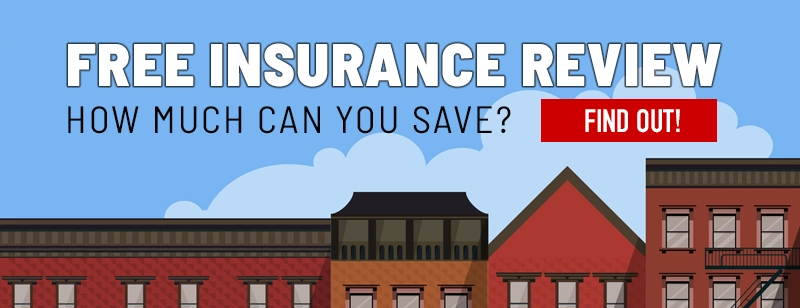10 Ways to Lower Building Insurance Costs

When you get new insurance for your building or renew an existing policy, a representative from the insurance company will visit your property to evaluate it before setting your insurance rates. So how can you lower building insurance costs? And what can you do to cut your premiums even before the representative arrives?
Some factors are outside of your control, such as the age of the property and the materials used to construct your building. But keep in mind that your insurance company sets your insurance premium based on perceived risk. The more you can do to reduce risk, the more attractive your building profile will look to an insurer.
Here are some ways to reduce your risk and negotiate lower insurance premiums.
Increase Your Deductible
If you can afford it, share more of the risk with your insurance company by raising your deductible, the amount of money you pay out-of-pocket in the event of a claim. The higher the deductible, the lower the premium cost. The deductible should be raised to a level that discourages indiscriminate claims. Use the savings on insurance premiums to self-insure any small claims.
Keep Employee Roles Up to Date
Make sure your payroll is accurate in classifying employees as full-time, part-time, and independent contractors. Make sure the company that provides your workers’ compensation insurance coverage is notified whenever you add or lose an employee.
Install Hard-Wired Smoke and CO Detectors
Where possible, use hard-wired smoke and carbon monoxide detectors (with battery backups) for the apartments in your buildings. Hard-wired detectors are wired directly into the building’s electrical system. This setup prevents tenants from disabling the smoke detectors by removing the batteries. If you can, use detectors tied into a security system that automatically dials 911 in the event of smoke, fire or carbon monoxide.
Install Proper Handrails and Fire Escapes
Another step you can take to lower building insurance costs is to make sure all handrails and fire escapes are secure. Double-check periodically to make sure they’re in good repair.
Make Child Safety a Priority
Install window guards on all windows of apartments in which children under age 11 reside, as well as safety knobs on stoves. If the building was constructed before January 1, 1960—or before January 1, 1978, if you know lead-based paint is present—investigate and remediate potential lead paint hazards, or conduct testing to confirm that no lead paint hazards exist.
Maintain Steps and Sidewalks
Check your building’s sidewalk for any major cracks. A major crack is anything that can be a tripping hazard. If it looks like the heel of a high-heeled shoe could get caught in the sidewalk crack, fix the crack before the insurance company’s inspection. Do the same thing for outdoor steps and railings. Keep in mind that trip-and-fall incidents are one of the leading causes of insurance claims.
Keep Fire Doors Closed and Install Panic Hardware
The building’s fire doors (for example, the door leading to the roof) should be closed and equipped with panic hardware, which allows tenants to exit easily in an emergency by pushing a bar.
Make Maintenance a Priority
When an inspector visits your building, will they see a building that looks well maintained? Keep hallways free from clutter, and make sure exit signs and lights are working. Those first impressions matter. Conduct your own in-depth inspection before the insurance company arrives. Have HVAC and other systems inspected and maintained, and keep those records handy. Do your best to look at your building as if you were seeing it for the first time.
Upgrade Aging Building Systems
When negotiating insurance rates, newer is better in the eyes of insurance companies. Upgrades to major systems, such as heating, electric and plumbing, can greatly improve your risk profile and make your building more attractive, helping you qualify for better pricing and broader terms at renewal time. (Always let your insurance partner know about any building improvements so he or she can negotiate on your behalf.)
Ask for Advice
Before the inspection is even scheduled, ask your insurance partner what else you can do to lower insurance premiums. An independent broker will know what each insurance company is looking for and can often spot relatively easy changes that might make a significant difference. Work with an experienced partner who will advise you 12 months a year to ensure you have the right protection for your situation. This ongoing partnership will help you present your property in the best light so you negotiate the lowest rates for your landlord insurance.
If you have any questions about insurance or your current insurance policy, or if you would like a free insurance review, please call us at 877-576-5200.
